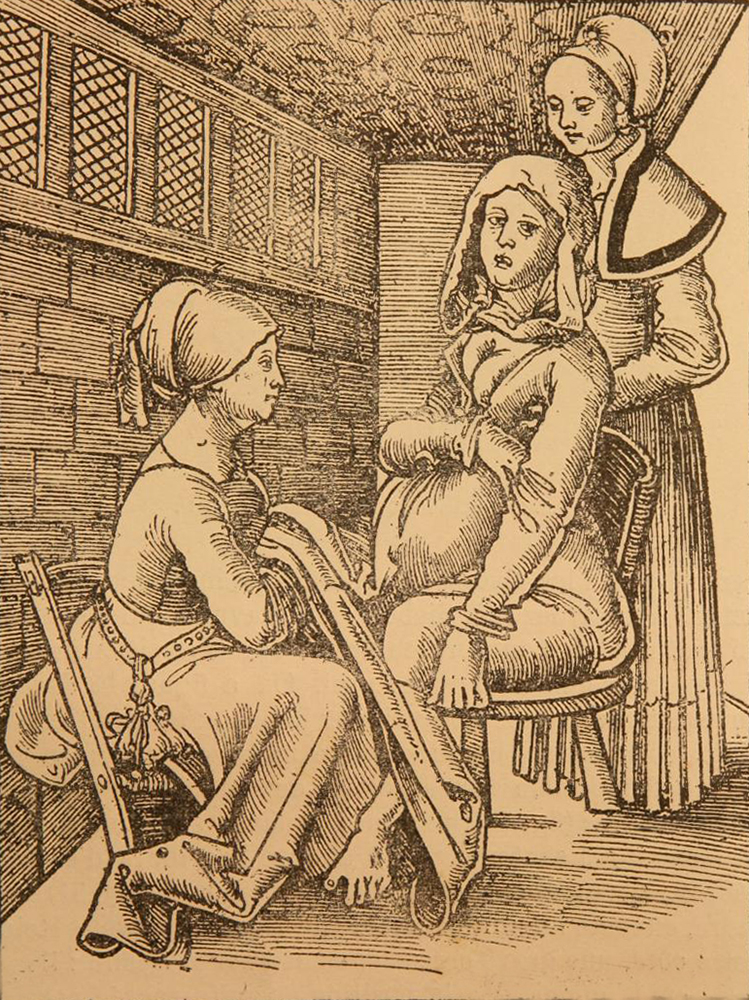Midwife

Source: Book Der schwangeren Frauen und Hebammen Rosegarten (The Rose Garden)
Author: Eucharius Rösslin (1470 – 1526)
Officially recognized by the Government of Québec in 1998, the profession of midwifery has contributed greatly to the cultural and social development of the province since the early days of colonization. Midwives support mothers during pregnancy and childbirth as well as during the first postnatal months. In the past, a woman could expect to have multiple pregnancies and, in addition to the ensuing pains, miscarriages were recurrent and complications sometimes led to the mother’s death. There was always concern that childbirth might be overshadowed by grief.
In the 18th century, obstetricians became more popular, but not all parents could afford the care of such a specialist. Midwives continued to be solicited in rural areas, where they played a leading role until the early 1960s. Their services were essential to society. This traditional profession was later devalued in favour of modern medicine; more and more women preferred to give birth in the presence of an obstetrician or a surgeon rather than a midwife.
However, during the 1970s, interest in midwives was revived as feminists and women in general began questioning maternity, childbirth and modern obstetric care. Thousands of people around the world were addressing the issue of “the humanization of perinatal care.” The questions included the growing problems of poverty, malnutrition and premature births. The midwife had regained the confidence of mothers—she was reassuring.
Canada is one of the few industrialized countries that did not legalize midwifery in the 1980s. Provinces had a variety of approaches. In Quebec, we favoured “experimentation of practice” in a few pilot projects. This was due, among other things, to the resistance of the medical profession, which saw this profession as a competition to family doctors and feared that this self-taught training could not meet current health standards. Midwives, on the other hand, did not really care to join the health care system, which created dissension. The profession was finally recognized in 1998, and today there is an order of midwives in Quebec.
This ancestral profession still arouses curiosity and has something to please (new and old) mothers with its personal approach and long-term support.

